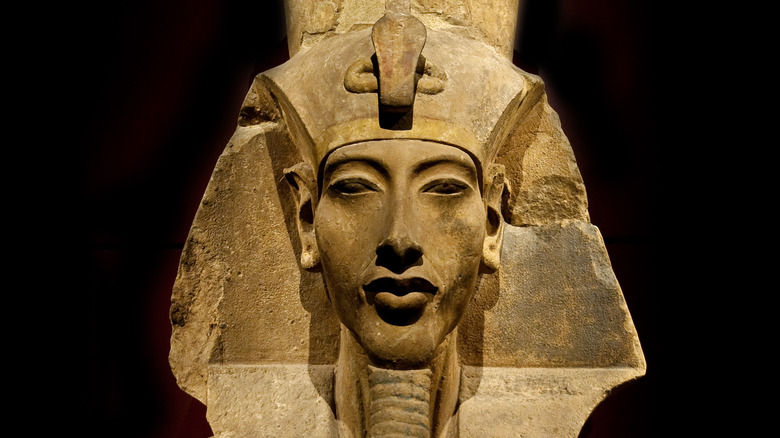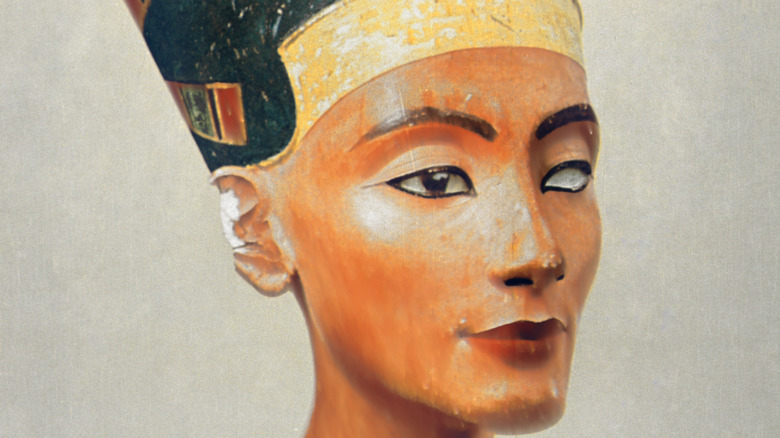Why Was Nefertiti's Husband So Disliked?
There are politicians and rulers who were despised by many throughout history. It can be due to their actions while in office to things that were done while they were out of their position of power. While the history books dutifully note that they held a certain powerful position, it may take a bit of digging to find out why they earned this level of disdain and disgust. One really reviled person was Pharaoh Akhenaten, the husband of Queen Nefertiti and the father of Tutenenkhamun, who ruled over Egypt from 1353 to 1336 B.C., per Live Science.
How bad was he? He was held in contempt by many of his citizens and was given a very unflattering nickname that still stays with him in the history books. There were several things that Akhenaten did to make people view him in an unfavorable light during his reign as pharaoh, and they are fascinating to learn about.
Nefertiti's husband had a very big ego
Per World History Encyclopedia, Akhenaten was not his original name. He was known as Amenhotep IV before that. He reigned for nearly five years under his first name, and then 12 more afterward. The reason that he made the change was that he saw himself as the embodiment of the deity Aten.
Why did he make this drastic change? It may have been jealousy. The cult of Amun (the word "cult" did not have the negative connotation it does today) had amassed more land than Amenhotep IV, so he abolished their religion and the worship of other gods other than Aten (via World History Encyclopedia). This turned Egypt from a polytheistic society to a monotheistic one, and that is something that upset a lot of people. The worship of different gods gave them harmony, and the declaration of only one god meant that the others were wrong.
He was dubbed the "Heretic King," and then to further exacerbate matters, he moved from the capital of Thebes to a place that he named Amarna. By doing this, he also disturbed relationships with the allies of Egypt, since he was the first pharaoh to declare himself a god. This made him think that his duties were beneath him, being a deity and all. He ignored requests for help from allies and certain places in ancient Egypt were lost due to his negligence.
The Egyptians tried to strike him from their history, and it wasn't until the 1900s that he was even discovered. That should show how mad they were. If there were polls back then, he probably would have ranked low.

